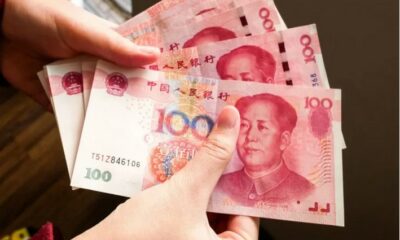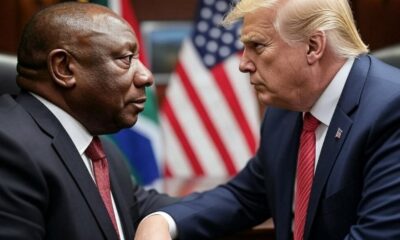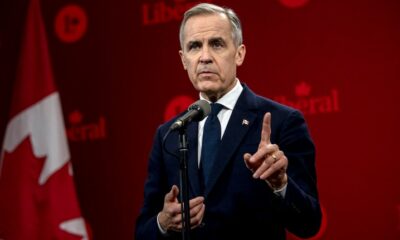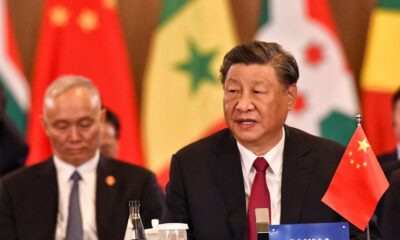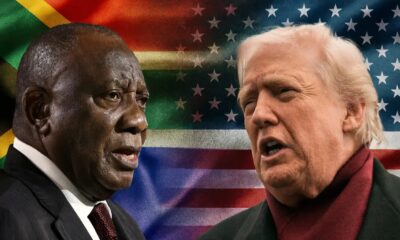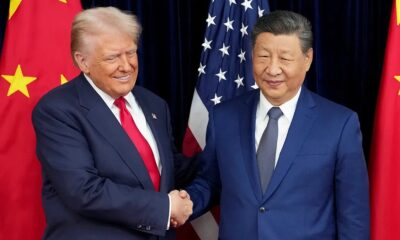News
Guided by the Global Governance Initiative, Africa Pushes for a Fairer World Order

A New Vision for Global Cooperation
With the 2025 G20 Johannesburg Summit just weeks away, global attention is turning to Africa. In a moment rich with symbolism, China has reaffirmed its support for the continent’s growing role in world affairs through the Global Governance Initiative (GGI), a framework aimed at creating a more balanced, inclusive international order.
Introduced by President Xi Jinping in September at the Shanghai Cooperation Organization Plus meeting, the GGI builds on China’s trio of previous global programmes: the Global Development Initiative, the Global Security Initiative, and the Global Civilization Initiative.
But this latest effort, unveiled ahead of South Africa’s G20 presidency, speaks directly to Africa’s long-standing call for justice and equality on the global stage.
Shared Ground with Africa’s Goals
The GGI’s central question, “What kind of global governance system do we need, and how can we improve it?” is not abstract diplomacy. It aligns closely with South Africa’s G20 theme of Solidarity, Equality, and Sustainability, as well as the African Union’s Agenda 2063, which envisions a self-reliant, prosperous continent.
In 2025, the African Union’s focus theme, “Justice for Africans and People of African Descent through Reparations,” adds further context. Across the continent, conversations about redress, representation, and reform are intensifying. The GGI acknowledges this global shift and echoes Africa’s determination to ensure that historical imbalances are finally addressed.
Reform, Not Rebellion
The initiative does not call for dismantling the existing world order but rather reforming it to work for all nations. Its five guiding principles, sovereign equality, international rule of law, multilateralism, a people-centred approach, and real-world results, emphasise partnership over dominance.
China and Africa, both leaders within the Global South, share an interest in strengthening multilateral institutions such as the United Nations, ensuring they reflect today’s geopolitical realities rather than the hierarchies of the past.
As Ambassador Jiang Feng, Head of the Chinese Mission to the African Union, wrote ahead of his visit to South Africa, the goal is simple: to build “a more inclusive and effective global governance framework” that amplifies the voices of developing nations.
Support for Africa’s Voice at the G20
China has been a long-time advocate for Africa’s stronger presence in global forums, becoming the first country to endorse the African Union’s accession to the G20. The 2025 summit, the first ever hosted on African soil, offers an opportunity for the continent to shape the conversation on fairness, sustainability, and shared growth.
Beijing’s backing of the GGI and South Africa’s presidency underscores its commitment to South–South cooperation, partnerships among developing nations that aim to challenge structural inequality in global governance.
Ambassador Jiang highlighted China’s confidence in South Africa’s leadership, noting that the summit could “bring new energy from the Global South into global governance and leave a powerful African imprint.”
A Call for Collective Leadership
The initiative arrives at a time when international institutions face growing scepticism. With geopolitical divisions deepening, the Global Governance Initiative seeks to restore trust by promoting inclusive decision-making and practical cooperation across continents.
For Africa, this marks a rare moment to turn political goodwill into tangible reform, one that could redefine its role not as a passive participant, but as an active architect of the world’s future.
As the world’s leaders prepare to gather in Johannesburg this November, the message is clear: a fair and equitable order is not just an aspiration; it is becoming a global expectation.
Also read: Concerns Grow Over NPA’s Future as Batohi Nears End of Term
Follow Joburg ETC on Facebook, Twitter, TikT
For more News in Johannesburg, visit joburgetc.com
Source: IOL
Featured Image: ESASTAP

